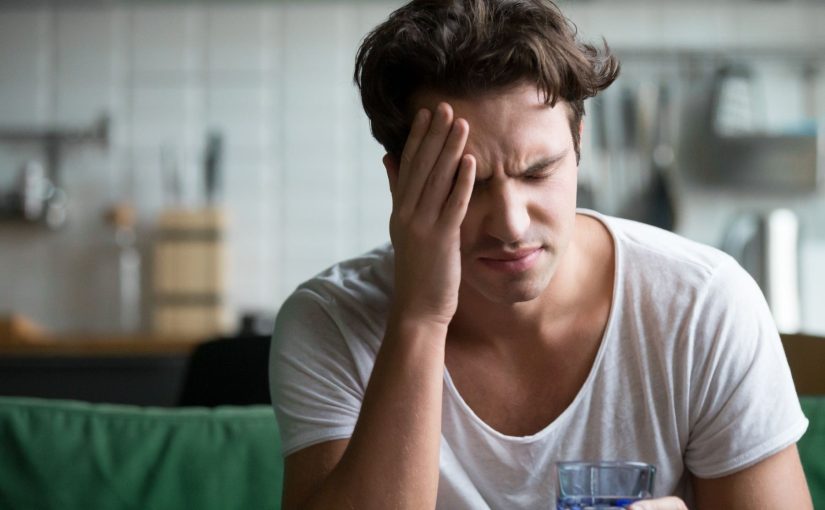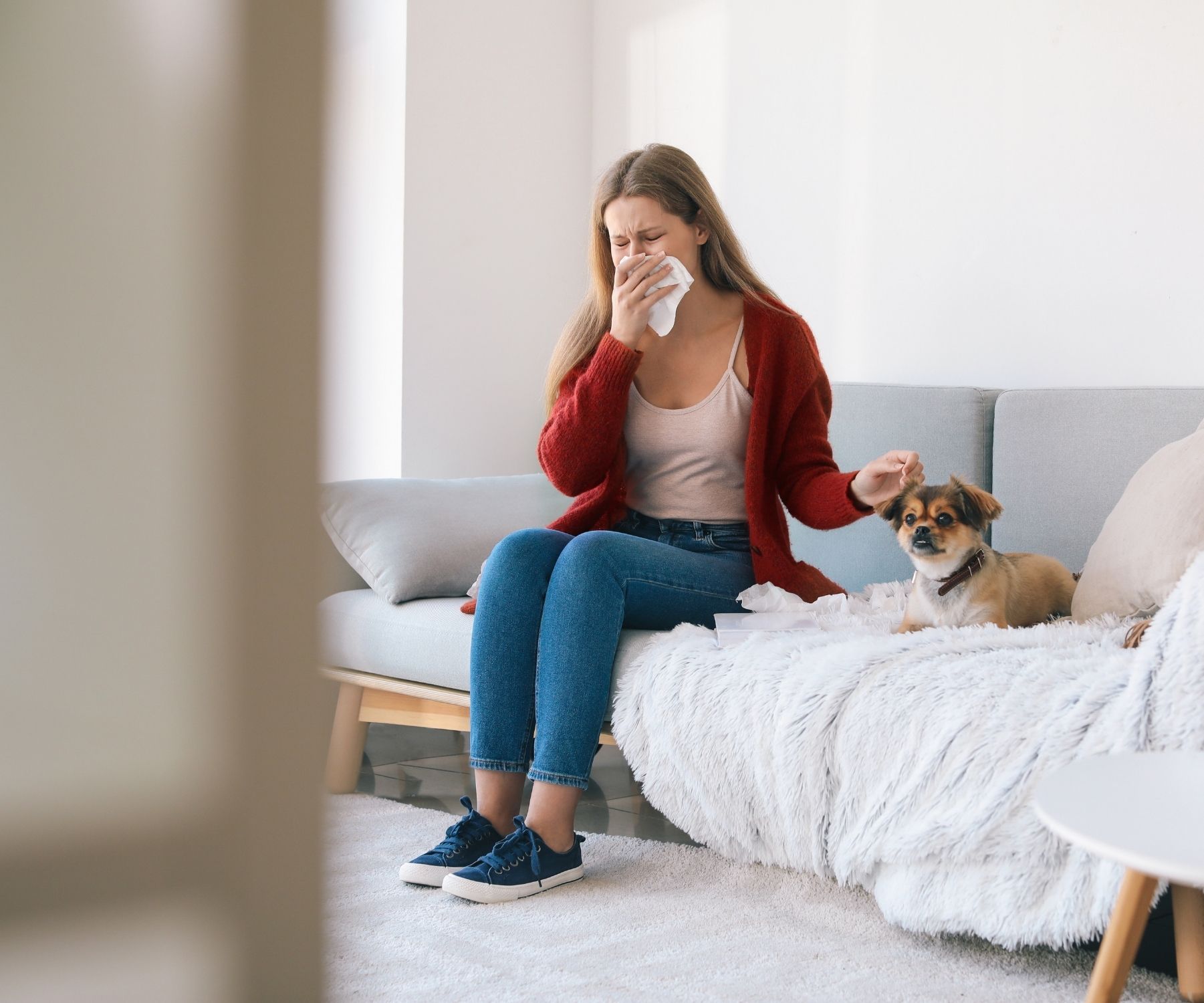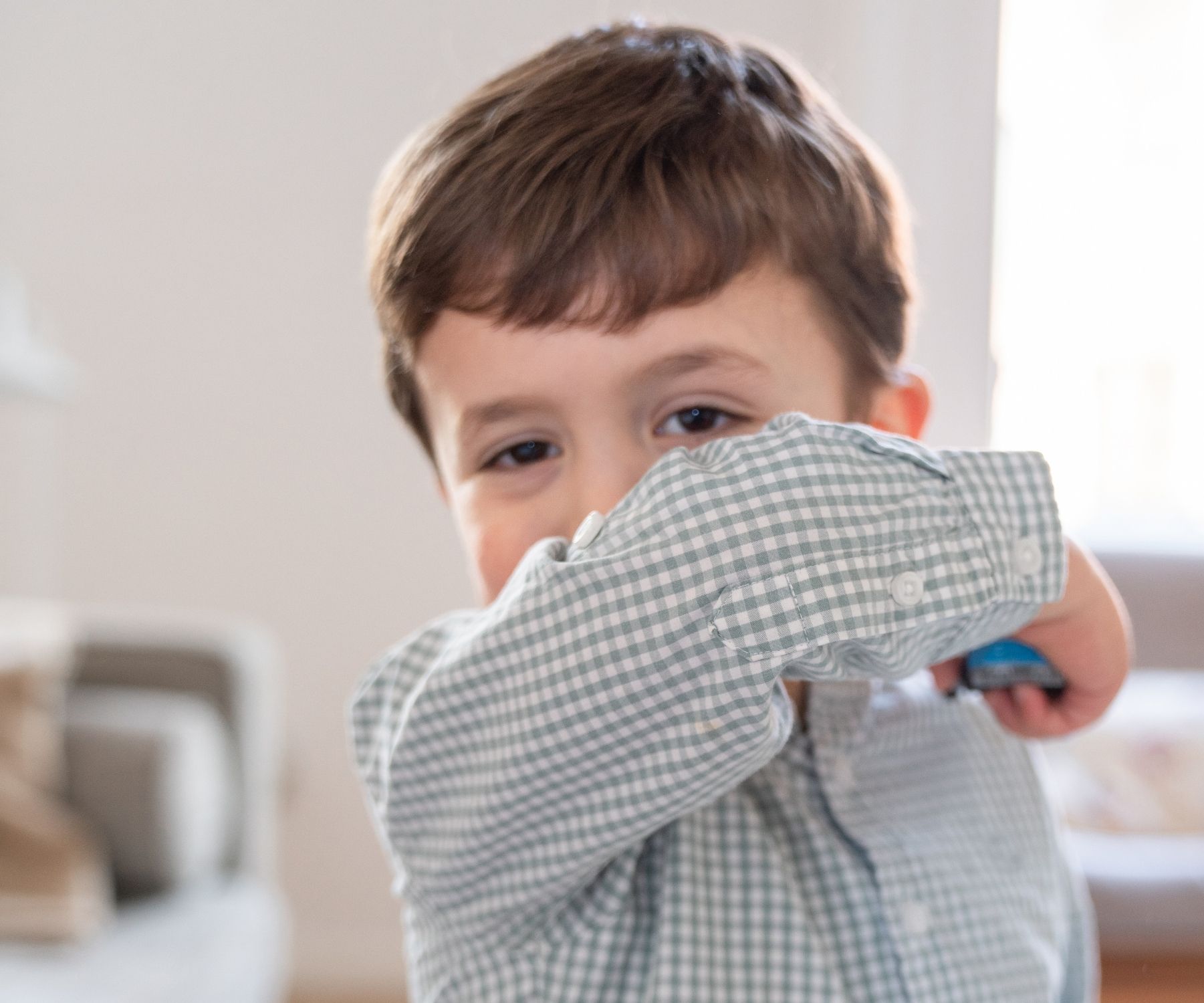Table of Contents
Can Air Purifiers Make You Sick?
Air purifiers are generally beneficial for improving indoor air quality, yet under certain conditions, such as improper filter maintenance or the use of ozone-generating models, they could potentially lead to health issues.
Ensuring regular filter changes and opting for air purifiers that do not emit harmful levels of ozone are key steps to maximize benefits and minimize any adverse effects.
 How Air Purifiers Can Cause Unexpected Health Issues:
How Air Purifiers Can Cause Unexpected Health Issues:
Ozone Generation by Air Purifiers
Air purifiers that operate using ionization processes or serve as ozone generators can inadvertently contribute to indoor air pollution by releasing ozone as a byproduct. Scientifically, ozone (O₃) is a molecule comprised of three oxygen atoms, known for its potent oxidizing properties.
While ozone is beneficial for removing odors in unoccupied spaces, Prolonged exposure to ozone can irritate the respiratory system, leading to coughing, throat irritation, and exacerbation of chronic respiratory diseases such as asthma.
Tip:
Consider running the ozone-generating air purifier only when the space is unoccupied, and ensure there’s ample time for the ozone to dissipate before re-entering the room. Ventilating the area after using such a purifier can accelerate the dispersion of ozone, reducing potential exposure and maintaining indoor air quality.
Improper Filter Maintenance
Air purifiers rely on filters to trap and remove contaminants from indoor air, but without proper maintenance, these filters can become a source of pollution themselves.
Over time, filters can accumulate not only dust and particulate matter but also biological contaminants like mold spores and bacteria. If these filters are not regularly cleaned or replaced , they can begin to release these accumulated pollutants back into the air, potentially degrading indoor air quality and posing health risks to the occupants.
Tip:
To ensure your air purifier continues to function effectively and does not contribute to indoor air pollution.
This should include checking the filters for accumulation of dust and debris and replacing them as necessary. For purifiers with reusable filters, follow the cleaning instructions carefully to avoid damaging the filter and to ensure it effectively traps pollutants.
Inadequate Purification Technology
Not all air purifiers are created equal, and the effectiveness of an air purifier largely depends on its technology and the specific pollutants it’s designed to target.
Some purifiers are excellent at capturing particulate matter like dust and pollen (using HEPA filters), but may not be as effective against gases and odors, including volatile organic compounds (VOCs) emitted from paints, furniture, and cleaning products.
Inadequate purification technology might not address the specific air quality issues in a space, potentially leaving harmful pollutants in the air and leading to health concerns.
Tip:
When selecting an air purifier, it’s essential to first identify the primary pollutants in your indoor environment. If VOCs or odors are a concern, look for air purifiers equipped with activated carbon filters, which are effective at absorbing gases and odors. For allergens and particulate pollutants, ensure the purifier has a true HEPA filter. Some air purifiers offer multi-stage filtration systems that combine several types of filters to address a broad range of pollutants.
| Indoor Air Pollutant | Sources |
|---|---|
| Dust Mites | Bedding, upholstered furniture, carpets |
| Pollen | Plants, trees, grasses |
| Mold Spores | Damp areas, leaks, humidifiers |
| Volatile Organic Compounds (VOCs) | Paints, solvents, cleaners, air fresheners |
| Pet Dander | Pets |
| Smoke | Tobacco products, cooking, fireplaces |
Adjustment Period
When introducing an air purifier into a space, especially in environments that have been heavily polluted, individuals may experience an adjustment period.
This period can be characterized by mild symptoms as the body adapts to the significantly cleaner air. These symptoms might be due to the body’s response to the sudden reduction in pollutants, which it had become accustomed to over time. While these symptoms are generally temporary and not harmful, they can sometimes be mistaken for the air purifier having a negative impact on health.
Tip:
If you experience symptoms during the initial period of using an air purifier, consider gradually increasing the usage time of the device rather than running it continuously from the start. This gradual approach allows your body to adapt more comfortably to the changes in air quality.
Ensure that the air purifier is correctly sized for the room, as an oversized unit might clean the air too quickly for your body to comfortably adjust. Additionally, maintaining good ventilation in your space can help ease the transition to cleaner air by providing a balance between purified and fresh outdoor air.
Displacement of Air Pollutants
Air purifiers work by drawing in air, filtering out pollutants, and releasing clean air back into the room. However, if an air purifier is not properly sized or placed in a room, it might not effectively circulate and clean the air throughout the entire space.
This can lead to areas where pollutants are not adequately removed and may even become concentrated, particularly in corners or areas far from the purifier. Such displacement of air pollutants can reduce the overall effectiveness of the air purifier and potentially lead to pockets of poor air quality within a room, causing confusion about the air purifier’s effectiveness or concerns about it making the situation worse.
Tip:
To ensure effective air circulation and filtration in your space, it’s important to choose an air purifier that matches the size of the room where it will be used.
Additionally, consider the placement of your air purifier; it should be positioned in a way that allows for unobstructed air flow from all sides. Avoid placing it in corners or tightly against walls. For larger spaces, you may need more than one air purifier strategically placed to ensure even coverage and optimal air quality throughout the area.
 Chemical Off-Gassing
Chemical Off-Gassing
New air purifiers, like many new electronic devices, can emit volatile organic compounds (VOCs) through a process known as off-gassing. This occurs as the new materials used in the construction of the device, such as plastics and electronic components, release chemicals into the air. While the levels of VOCs are typically low and decrease over time, sensitive individuals might experience irritation or discomfort from these emissions. This off-gassing can lead to confusion about the air purifier’s effectiveness, with users wondering if the device is worsening the air quality instead of improving it.
Tip:
To minimize exposure to VOCs from a new air purifier, consider unboxing and running the device in a well-ventilated area or outdoors for a few hours before introducing it into your living or working space.
| Type of Air Purifier | Primary Function | Effective Against |
|---|---|---|
| HEPA Filters | Trap particulate matter such as dust, pollen, and pet dander | Particulate pollutants |
| Activated Carbon Filters | Absorb gases, odors, and VOCs | Gaseous pollutants and odors |
| Ionizers | Charge air molecules to attract and settle dust and allergens | Airborne particles |
| UV Light Purifiers | Use ultraviolet light to kill bacteria, viruses, and mold | Microorganisms |
| Ozone Generators | Generate ozone to neutralize odors and pollutants | Odors and some microorganisms |
In Summary
Can Air Purifiers Make You Sick? When utilized correctly, air purifiers have the remarkable potential to enhance not just the quality of our indoor air, but also our overall health and well-being. By embracing proper maintenance practices and selecting the right air purifier for your needs, you’re not just investing in cleaner air – you’re investing in a healthier, more vibrant life.
Only remember to make informed decisions by considering factors such as specific indoor air quality needs, existing health conditions, and the features of different air purifier models.



 Chemical Off-Gassing
Chemical Off-Gassing